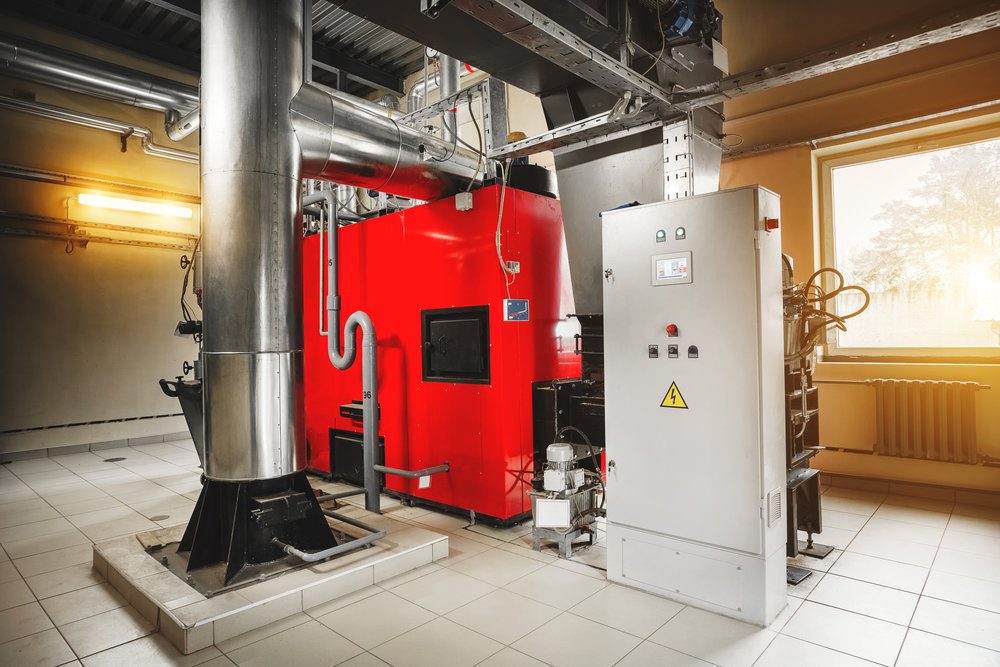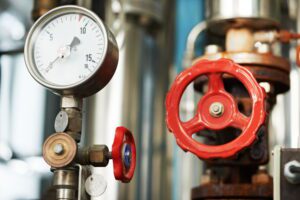Whether you’re using a boiler for industrial application or as a power source, you’re feeling a lot of pressure to ensure that the boiler is energy efficient and meets certain emission standards. You’re considering upgrading your current boiler with a low NOx boiler. However, before you commit the time and financial resources, you have questions that you want to be answered. Here’s a look at the most commonly asked questions:
What Is NOx, and Why Does It Matter?
NOx is a term that’s used to represent two forms of nitrogen oxide. There is nitric oxide (NO) and nitrogen dioxide (NO2). These forms of nitrogen oxides are the ones that are most commonly linked to air pollution. NOx plays a large role in the creation of acid rain and smog.
They’re also linked to the effects that they’re having on the tropospheric ozone layer. There’s a lot of buzz around the way that these forms of nitrogen oxide are affecting the weather patterns and playing a part in climate change.
During the combustion of fuels, nitrogen and oxygen create NOx. Since most industries require fuel to perform their tasks, manufacturers have begun to look for ways to lower emissions of NOx and help make machinery more energy efficient.
By limiting NOx creation, the amount of air pollution should become lower, and fog and acid rain should also become reduced. Hopefully, this can make industries that require fuel combustion more eco-friendly.
What Is a Low NOx Boiler, and How Does It Work?
A low NOx boiler is a boiler that releases fewer nitrogen oxide particles than a traditional one. This boiler still heats water until it becomes steam, but it does so in such a way that there are fewer emissions than fuel combustion.
While low NOx boilers can come in a few different designs to meet your company’s needs, they can still reduce the emission of NOx to under 30 ppm during fuel combustion. Energy efficiency is also a benefit of these boilers.
With lower flame temperatures, these boilers have stable fuel combustion, which lowers the NOx. The excess air requirements for these boilers are lower, and they don’t waste as much fuel as a traditional boiler during the conversion of water to steam.
The low NOx boiler works by controlling the mixture of fuel and air at the individual burners. This control creates flames that are larger with lower temperatures, and the lower flame temperatures reduce the amount of NOx released during fuel combustion.
 What Are the Benefits of a Low NOx Boiler
What Are the Benefits of a Low NOx Boiler
You want to learn more about the benefits of making the transition to a low NOx boiler. You’ll find a variety of benefits that are important to your company, such as:
Meet Strict Emissions Standards
A low NOx boiler can drastically reduce the emissions created by your company, especially if you’re using only traditional boilers currently. This makes it easier for your company to stay within the regulations. Each year the regulatory committees, including the Environmental Protection Agency (EPA) tighten the emission standards for corporations using boilers.
In some cases, the reduced emissions and your company’s ability to meet the strict emissions standards can qualify your business for a rebate from the government or tax incentives. Depending on the state where your company is located, you might qualify for even more tax savings or additional rebates when you purchase your new low NOx boiler.
While the emission regulations seem stiff now, it’s entirely possible that even more strict regulations may occur in the coming years and decades. With your new low NOx boiler in place, you’ll be ready to meet the new emission standards as they come. This can help you avoid fines now and in the future.
Reduces Carbon Monoxide Emissions
Lowering your NOx emissions isn’t the only way a low NOx boiler can help reduce your company’s carbon footprint. These boilers can also reduce the carbon monoxide emissions that your business is responsible for releasing. Anytime that fuel combustion occurs in your boiler or any other machinery, one of the substances released is carbon monoxide.
When the fuel combustion is as efficient as it can be or lower than normal, there’s a lower emission of carbon monoxide along with the other eight emissions that include:
- Carbon dioxide
- Nitrogen
- Oxygen
- Water
- Nitrogen oxide
- Sulfur oxides
- Volatile organic compounds
- Particulate matter
A company that can show it’s reducing its emissions of carbon monoxide and other pollutants can receive tax incentives while avoiding the possibility of fines and other penalties for violation of regulations. In the near future, all of these emission guidelines will become stricter, and you can position your company to ensure it’s ready to meet them with a low NOx boiler.
Improve Energy Efficiency
When you improve energy efficiency in your boiler or any other machinery, it’s going to save you money in fuel costs. The efficient low NOx boiler will require less fuel to return the same results, which lowers your fuel bill while improving the output of your boiler.
With a new low NOx boiler, you’ll notice lower bills each month whether you use coal or natural gas. When you combine this with increased output for the same amount of fuel, it helps your entire overall revenue. Your new low NOx boiler helps with energy efficiency, and you can pass these savings along to your customers or realize more profits.
Looking to Upgrade to a Low NOx Boiler?
You know that you need to begin lowering the NOx output of your business. While part of that reason is to help eliminate pollutants and increase clean air, you’re also facing strict emission regulations from both state agencies and the EPA. It’s easier to make the change to a low NOx boiler than to look for other ways to lower your emissions.
In addition to lowering your NOx emissions, the new boiler will also help your company reduce its carbon monoxide emissions and improve energy efficiency, saving you money. Contact us today when you’re ready to take the next step.





